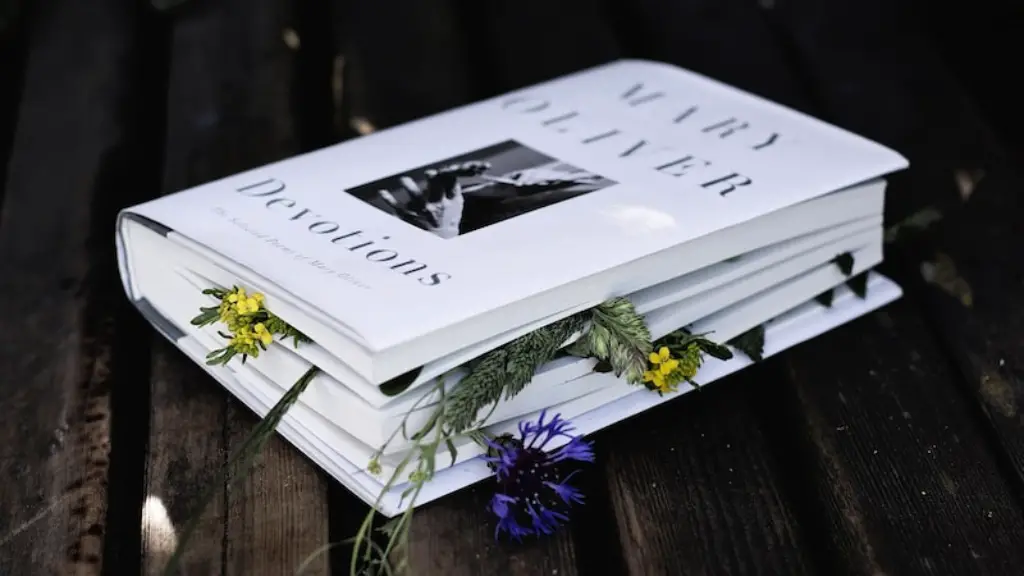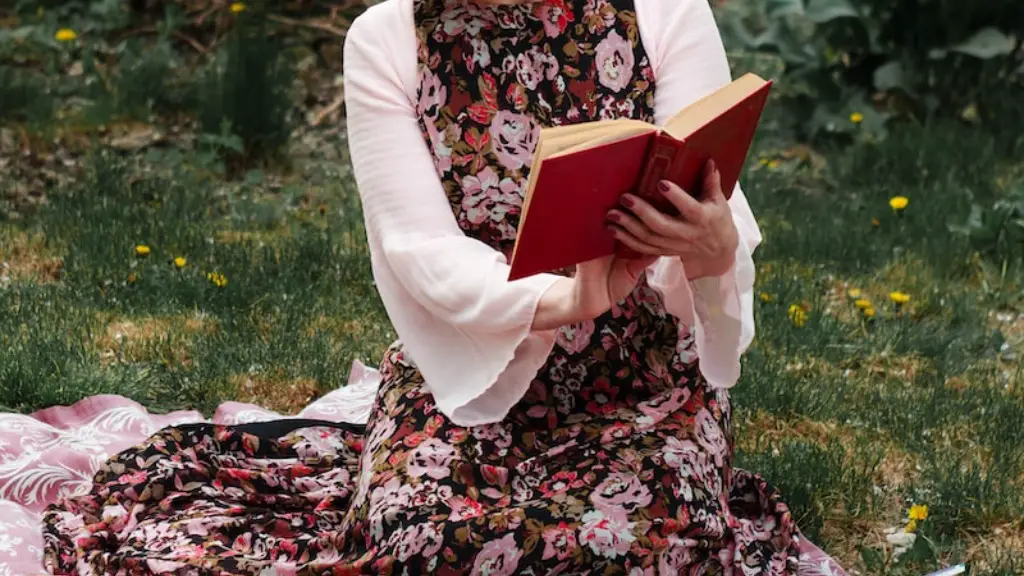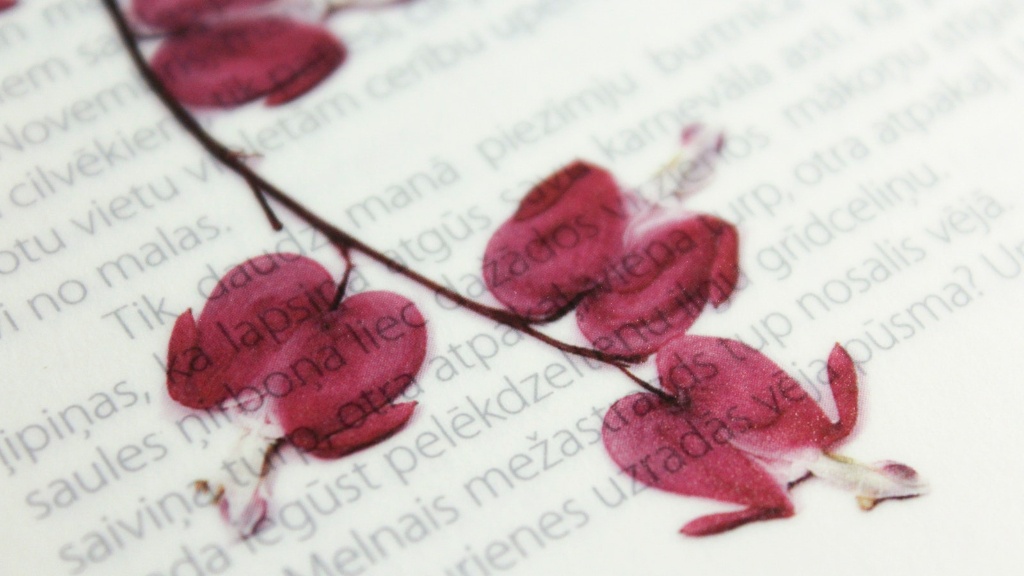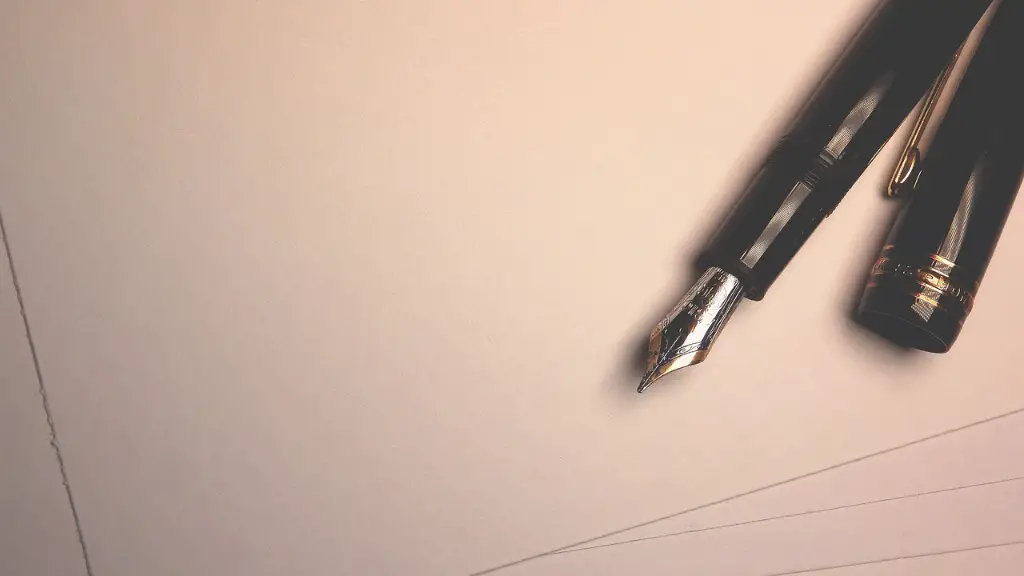A poetry book is a collection of poems, written by a single author or several authors. Generally, the authors can be a diverse array of writers, including poets and lyricists. Poetry books often consist of collections of pieces that span a considerable range of topics, from nature, to relationships, to politics and philosophy, to creative flights of the imagination. They can include both the work of experienced and emerging writers, as well as the works of both contemporary and classic poets.
The traditional form of poetry books is usually printed on paper. However, e-books, audio books, and digital downloads are increasingly popular due to the various multimedia capabilities available through digital mediums. Fairly recently, a newer type of poetry book has become available—zine-like chapbooks—which are collections of works self-published by poets.
Poetry books are often organized by subject. For instance, a collection of poems about love and relationships might be titled as such or be organized into two thematic sections. Some anthologies focus on one specific genre, such as haiku or couplets, while others are collections of poets from a certain era or region. A poetry book may also by organized by the topics the poems explore.
Some of the most popular poetry books are those featuring classic works from reputable authors. These can often be found in libraries and bookstores. These books frequently feature a greater variety of poetry styles and sometimes include biographies of the authors as well. There are also collections of lesser-known works by lesser-known authors, as well as anthologies that include works by several poets.
What makes a poetry book unique is its ability to provide readers with deep and meaningful insight into the human condition and the different ways that people experience the world. It can be a source of entertainment, inspiration, and education. A poetry book can also tell stories in ways that prose can’t, because of its ability to use the nuances and complexities of metaphor and imagery.
The experience of reading a poetry book isn’t always the same for everyone. For some, it is an exercise in reflection and contemplation. For others, it is an intellectual pursuit, an exploration of difficult questions. For still others, it is an escape from reality. No matter what the approach, one thing is certain: reading a poetry book can be an enjoyable, thought-provoking experience.
Different Forms of Poetry Books
Poetry books come in a variety of different forms, from chapbooks to hard covers to e-books. Chapbooks are usually small in size and contain collections of short stories or poems. Hard cover poetry books are often more expensive due to their better binding, cover, and pages. E-books and digital downloads can range in price as well as content, depending on the platform they are purchased from.
Chapbooks can be used to introduce new poets and new writing styles to a wider audience. Many of these books are self-published, meaning they are printed and bound in a more affordable, off-set fashion. In the digital age, e-books have given poets a more affordable option to share their works.
Hardcover books, on the other hand, are usually put together by publishers or larger bookstores. These books usually contain a much wider variety of poems from multiple authors. They tend to be of a larger size than chapbooks and often have better binding and covers.
Benefits of Reading Poetry Books
Reading a poetry book can provide both mental and emotional rewards. By exposing oneself to the thoughts and feelings of authors, readers can gain insight into their own perspectives, and how the poetry helps shape them. It can also help cultivate a greater appreciation for the written language.
Reading poetry can also have an effect on one’s physical health. It provides a sense of relaxation and a respite from the everyday stress of life. By easing stress and anxiety, readers can also improve their general wellbeing. It has also been said that studying the works of established poets can help improve one’s writing skills.
Online Resources for Poetry Books
The internet can be a great resource for readers looking to find poetry books. Many websites are dedicated to providing readers with extensive catalogs of books from around the world. Additionally, there are myriad online sources for poetry including blogs and self-publishing sites.
The website Goodreads, for instance, has a large selection of poetry books from emerging and established authors. They feature reviews, ratings, and reader recommendations. Additionally, the website Poets.org provides readers with quality suggestions for new and vintage books.
Amazon is another brilliant resource when it comes to finding poetry books. It offers one of the biggest selections of poetry books available and also has reader reviews, ratings, and recommendations. Other notable online sources include Smashwords and The Poetry Foundation.
Distribution of Poetry Books
The distribution of poetry books has changed significantly over time. Traditional bookstores still remain a popular market for selling poetry books. These stores generally feature the most popular books from established and emerging poets. Additionally, libraries and book festivals are often sources for both classic and contemporary poetry.
Non-traditional outlets such as coffee shops, art galleries, and online sites are increasingly popular for selling poetry books. Smaller stores and outlets often feature collections from smaller poets and self-published authors who normally don’t get the same exposure as those in large bookstores. Many of these outlets are also great resources for finding rare and vintage books.
Online outlets and services like Amazon and The Poetry Foundation have also made it easier for poets to get their works out to a wider audience. These outlets often provide a great deal of insight into the works of various authors, as well as reviews and reader favorites.
Market For Poetry Books
The market for poetry books has changed a great deal in recent years. Digital outlets like Kindle and iBooks have given readers, and authors, access to thousands of books from across the globe. Additionally, zine-like chapbooks and other digital collections, such as blogs and e-books, have increased readers’ access to self-published works.
The increasing number of outlets for poetry books has provided a wider audience with access to different works from different authors. This has opened up the market for both emerging and established authors and allowed for greater public exposure. This has increased the sales and distribution of poetry books.
The increased access to poets and their works has also stimulated an interest in traditional print books. Many of these titles have become extremely popular due to their unique and meaningful content. As such, traditional charcoal, watercolor, and illustrated poetry books can often be found in the majority of bookstores.
How To Read A Poetry Book?
Reading a poetry book isn’t as difficult as it might seem. The trick is to take your time and read the poem more than once. The first time, glance over the entirety of the poem. What is the poem about? Try to determine the main theme and plot. Then, read the poem again and take notice of how the words are put together and the images that are being used.
After the second read, go back and explore any unfamiliar words or phrases. Forming an understanding of the structure helps to better understand the poem as a whole. After getting an understanding of the poem as an overarching structure, delve into individual words and expressions. What does a word mean? How does it contribute to the overall feeling of the poem?
Finally, sit back and ask yourself what the poem meant to you. What did the author want to tell you? Does it have anything to do with your own life or experience? Are there experiences connected to the poem? Enjoy the process of interpreting a poem and interpreting it in ways that are meaningful to you.
Conclusion
Poetry books contain a variety of forms, styles, and topics. They provide readers with an opportunity to experience a range of perspectives and explore the depths of the human condition. Whether they are a source of entertainment, inspiration, or knowledge, poetry books have the power to move readers, both emotionally and spiritually. By exploring each work with imagination and insight, readers are sure to gain something from every poetry book they read.





